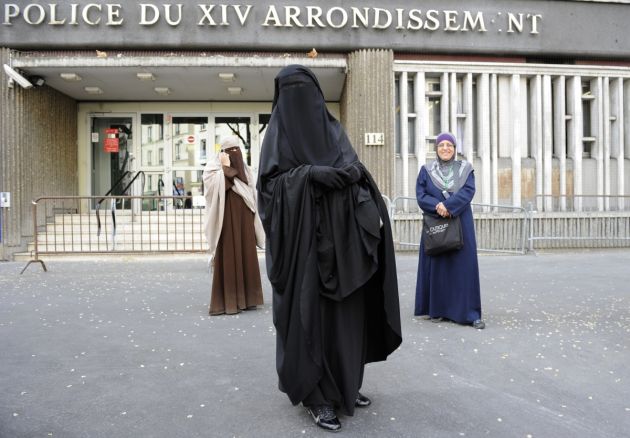Two defy first day of burqa ban in Swiss canton of Ticino

A law banning face-covering headgear such as the burqa has come into effect in Switzerland's canton of Ticino, and on the first day a Swiss woman, who converted to Islam, was apprehended for breaking the law.
The Swiss woman and a French-Algerian businessman are facing fines after defying the law, voted in by a 2013 referendum, in Italian-speaking Ticino, that banned face-covering headgear on its first day, July 1.
The two chose the moment to publically oppose the ban in the lakeside city of Locarno.
The law forbids burqas in shops, restaurants, or public buildings, with offenders facing a fine of up to 10,000 Swiss francs (around $10,280).
Nora Illi is a member of the radical Islamic Central Council Switzerland and she walked through the streets of Locarno wearing a full length burqa before police officers stopped her, Swissinfo reported.
She was arrested along with Rachid Nekkaz, who has also openly protested similar bans in Belgium and France.
As a foreign national, Nekkaz was immediately fined 200 fine Swiss francs for incitement to break the law, plus 30 francs to cover costs. His eventual fine could rise depending on the verdict of the local authorities.
Illi, from Zurich who converted to Islam in 2002 and she faces a fine of between 100 and 10,000 Swiss francs.
PAY FINES TO RAISE AWARENESS
Nekkaz said he would pay all of the eventual fines out of his own pocket to raise awareness of what he considers a discriminatory law.
The Ticino region's Parliament approved a referendum in 2013 banning face-covering headgear, but it was not enforced until now.
France, the Netherlands, and Belgium have passed similar laws that in 2014 were upheld by the European Court of Human Rights.
Muslim's account for some 5 percent of Switzerland's 8.34 million total population numbering some 420,000.
Ticino borders Italy to the south and has some 350,000 residents, or about 4.2 percent of Switzerland's population.
Before the law came into effect in Ticino, the Saudi Arabian Embassy in Bern had reminded its citizens that wearing a burqa or niqab would soon be illegal in canton Ticino.
The embassy posted its advisory on Twitter:
"The embassy wishes to emphasize that the Ticino cantonal authorities in south eastern Switzerland have announced that as of July 1, 2016 they will start to enforce the burqa (niqab) ban in public places in the canton, including in Lugano, Locarno, Magadino, Bellinzona, Ascona and Mendrisio.
"As school holidays [in Saudi Arabia] are coming up, the embassy reminds all honorable citizens of the necessity to respect and conform to Swiss rules and regulations in order avoid all problems."
The law makes no exceptions for tourists, The Local Ch reported.
During the extremely hot summers in the Gulf region a number of residents holiday in the cooler climate of Switzerland.
Some 40,000 visitors from the Middle East traveled to Ticino in 2015.